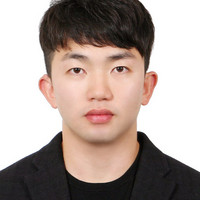Yongkuk Jeong (Jake) new assistant professor in production logistics
NEW DIGITALISATION RESEARCHERS
In 2021, Yongkuk Jeong (Jake) was appointed assistant professor in production logistics at the Department of Sustainable Production Development/ITM school. His research is focused on the digital services that can improve sustainability in production logistics.
What is your research area?

"My main research area is digitalization in production logistics. Especially it is focused on the digital services that can improve sustainability in production logistics. In this context, production logistics can be defined as the flow of goods, materials, and parts related to production system. Also, sustainability includes environmental, economic, and social perspectives. In my research work, I need to collect the requirements and needs from different stakeholders. Based on the requirement analysis, digital solutions including sensors, algorithms, frameworks are introduced and tested. I have been collaborating with many different industries including automotive, pharmaceutical, shipbuilding, and steel manufacturing industries," Yongkuk Jeong says.
What are the large research challenges in your research area and why?
"I think the large research challenge in this area is standardization. It is almost impossible to have homogenous elements in production logistics. There are many different suppliers, protocols, standards, and frameworks. Even though we want to digitalize a single process or task, there are many related stakeholders and elements, so it is necessary to understand their own interface and other system as well. Digital technologies are being applied in more and more areas and the application area will expand further in the future. That means, we will have more complicated system than now, so I think this is the large challenge in this area."
If you are looking for research collaborators, what competence is important?
"Thousands of new digital technologies are being developed nowadays. But I can't keep following up with all the new technologies and there are too many to fully understand. But together with me, we can find cases that can be applied to real-life. Therefore, I would like to find collaborators who have elemental skills and want to apply them in the real world. And I want to find collaborators who are interested not only in the application of technology, but also in its impact on society, such as sustainability."
Tell us more about one of your research results and why you picked it?
"I applied and tested various IIoT (Industrial Internet of Things) technologies to improve production logistics efficiency with Scania, Ericsson, and other industrial partners. We proposed a method to improve the existing taxi-like internal delivery system into an on-demand delivery system like Uber by installing RTLS (real-time location system) on their forklifts. In addition, we developed a digital twin for production logistics to test various scenarios in a virtual environment, and to verify and test the results in a real physical environment."
"This case is the result of the CPALS project, which was funded by Eureka SMART in cooperation between Sweden and South Korea. In the Swedish consortium we focused on the logistics part and Korean partners focused on assembly process in manufacturing."
Lastly, what do you like with Sweden, Stockholm, and KTH?
"I think the equal social atmosphere in Sweden is very helpful for research (and living as well). It is a great help to ask questions, exchange opinions and have discussions freely. It's been a little over 3 years since I moved to Stockholm, and I love the cool and dry summer!"
"Based on my experience, I think that KTH's various initiatives are very helpful for collaboration. The Digitalization Platform, Industrial Transformation Platform, IRIS Initiative, etc. are very helpful in meeting and interacting with people from various backgrounds."

